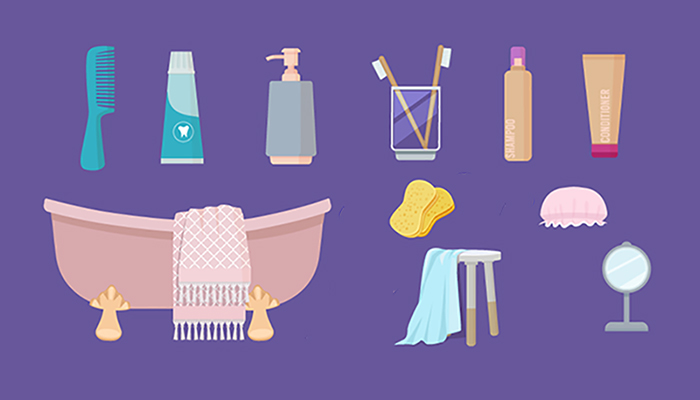Caring Connections
Helpful tips for family caregivers
January/February 2021
Is the person you care for socially isolated? Feeling lonely, anxious, or depressed? If an actual pet is not feasible, research suggests a robo-pet may do the trick, especially for those with dementia. On a matter of physical health, January is National Glaucoma Awareness Month. In our middle article we discuss the things you can do to support your loved one to slow the progression of blindness. Last, we look at a common realization during the holidays: Personal hygiene slipping by the wayside when Mom or Dad used to be quite fastidious. We offer tips to help you identify possible causes and simple solutions.
With all that has been out of personal control in 2020, we’re even more dedicated in 2021 to helping you understand those areas of family caregiving where you can make a difference!
A robo-pet for companionship?
 There is no doubt that seniors are suffering emotionally, and physically, from the social isolation of the pandemic. Those with dementia have been especially hard hit. Even elders who live on their own with no memory problems are struggling with loneliness, depression, and anxiety.
There is no doubt that seniors are suffering emotionally, and physically, from the social isolation of the pandemic. Those with dementia have been especially hard hit. Even elders who live on their own with no memory problems are struggling with loneliness, depression, and anxiety.
How is your loved one doing emotionally? Want to introduce a pandemic-safe companion? Odd as it sounds, you might consider a robo-cat (or dog) as part of your emotional COVID first aid.
Pets are beloved companions. And studies with elders show that even short regular visits—called “pet therapy”—with trained companion animals can lower blood pressure and reduce stress and anxiety.
Robo-pets are lifelike, battery-operated creatures. Robo-cats and -dogs look real. They have fur that feels real, and they can purr (cats) or bark (dogs). They also “interact” in that a robo-pet can move its head, open and close its eyes, respond to voice and touch, and lift a front paw. The cats even roll over! These pets require no walking, feeding, or cleaning of a litter box. They cost $100–$150. There are no vet bills. Plus, you avoid allergies, fleas, and the inevitable grief when a beloved pet eventually dies.
But really? Can a fake dog or cat provide companionship? Studies with robo-pets have shown that people with mild to moderate dementia respond quite well. They appear to become less stressed and anxious. Those spending time with a robo-pet, even short visits, seem to need less pain medicine. They also exhibit fewer behavior problems and require less medication to stay calm.
Robo-pet studies also show benefits for older adults with no memory problems. Participants were well aware these “pets” were not real dogs and cats. Still, treating them as if they were real decreased feelings of loneliness and boosted feelings of resilience and mental well-being. The “pet owners” also reported feeling a greater sense of purpose in life.
Return to topSlowing the progression of glaucoma
 Glaucoma is a leading cause of blindness among older adults. It causes pressure in the eyeball to build up to a point that the optic nerve is damaged. There is no cure or repair. That’s a grim reality if your loved one has been diagnosed with this disease.
Glaucoma is a leading cause of blindness among older adults. It causes pressure in the eyeball to build up to a point that the optic nerve is damaged. There is no cure or repair. That’s a grim reality if your loved one has been diagnosed with this disease.
Fortunately, glaucoma’s progression can be slowed and blindness prevented. Your relative can remain active and fully engaged with life.
Steady wins the race.
- Consistent use of medication. Prescription eye drops are key to reducing eye pressure. They are often taken two or three times a day. Skipping a dose or skimping on the absorption time reduces their effectiveness. No cutting corners!
- Frequent aerobic exercise. Physical activity is good, especially aerobics, which promotes a strong blood flow to the optic nerve. A brisk 20-minute walk three or more times a week will help preserve vision and also stave off depression.
- Eliminate head-down positions. Yoga is an excellent calming exercise that can help address emotions surrounding a glaucoma diagnosis. But your loved one should steer clear of positions such as the “downward dog.” The head should not be lower than the heart.
- Avoid holding the breath. Anything that causes the eyes to “bulge out” is raising the pressure inside. Weight lifting is not advised. Neither is straining on the toilet.
Diet. Green leafy vegetables are good for general eye health, and a high-fiber diet relieves constipation. Special supplements have been shown to be helpful for other vision conditions, but not for glaucoma.
Caffeine can increase eye pressure (bad), while alcohol and marijuana can decrease it (good). The effects of all three are minor and last only a few hours. As a result, moderation is the wisest course.
In sum, the best way to help your loved one is to encourage medication consistency and the awareness that they have the ability to keep blindness at bay.
Return to topProblems with hygiene
 It’s not uncommon for a holiday visit to reveal that things with mom or dad are newly amiss, particularly in the area of personal grooming. Maybe mom has always been fastidious about her appearance, and now she’s disheveled. Or dad didn’t change clothes the entire time you were there, and maybe even had a strong odor.
It’s not uncommon for a holiday visit to reveal that things with mom or dad are newly amiss, particularly in the area of personal grooming. Maybe mom has always been fastidious about her appearance, and now she’s disheveled. Or dad didn’t change clothes the entire time you were there, and maybe even had a strong odor.
There are many possible reasons for such changes:
- Poor vision or reduced sense of smell. Your loved one may not see stains on garments or smell their own odors. Without these cues, they may neglect to bathe or do the laundry.
- Depression. Especially if your relative shows little interest in things they used to enjoy, it may be that depression has sapped their motivation. Ask your loved one’s doctor to do a depression screening.
- Fear of injury. Slippery surfaces, poor lighting, and unsteady balance combine to make the bathroom a dangerous place. Try installing a light in the shower, also grab bars and nonskid pads. Add a bath chair and a handheld showerhead so your loved one can clean up while seated.
- Memory issues. Periodical forgetfulness is one thing. But a change in personal hygiene can be a sign that your relative is struggling with dementia. It may be that they need memory prompts or actual assistance.
Bringing up the subject. Take a respectful, go-slow approach. Are they making a choice to bathe less frequently or having trouble navigating the bathroom? (Bathing 1–2 times a week IS enough to stave off skin problems and infections.) Similarly, with clothing: Unawareness, or problems doing laundry? See what they say and learn if/how you might help. Or tell the doctor what you’ve observed and let the doctor explore possible causes. It may be easier for your relative to be candid with a professional than admit their problems to you.
Return to top



